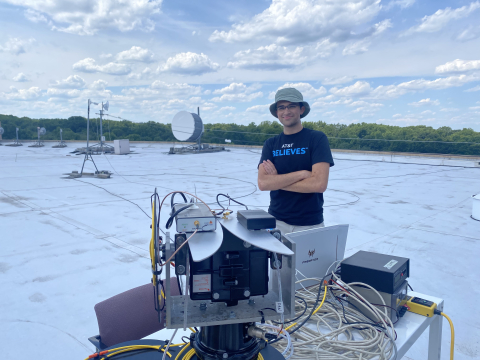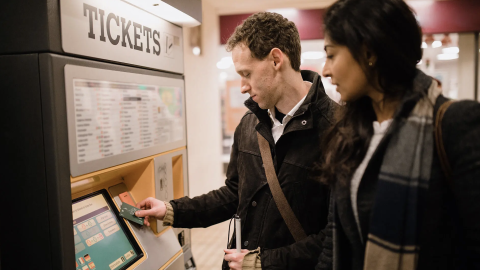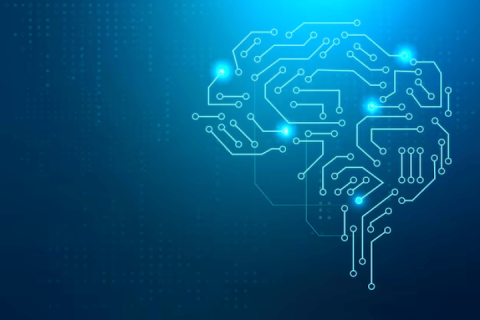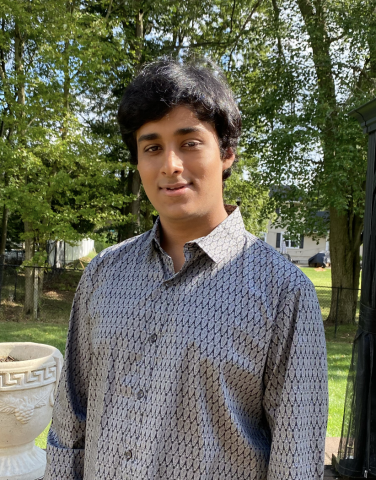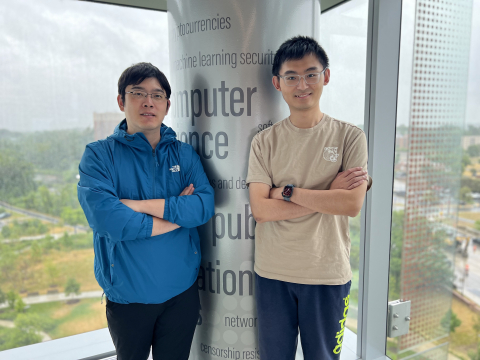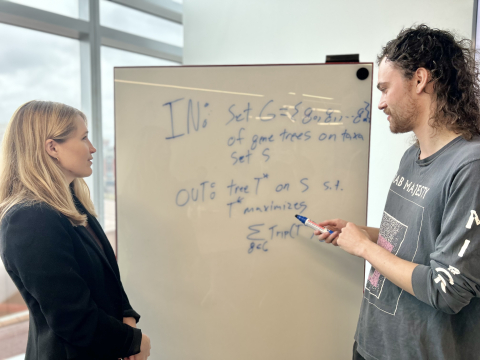Recent News & Accomplishments
2023
The Department of Computer Science’s Undergrad Program Shines in 2024 U.S. News Rankings; Top 10 Publicly in Cybersecurity, Data Science and AI.
The University of Maryland’s undergraduate computer science program ranks 9th among the country’s public institutions and 18th overall in the 2024 edition of U.S. News & World Report’s “Best Colleges.” UMD also ranks in the top 10 among public institutions in three undergraduate computer science specialties: Cybersecurity: #7 public (11th overall) Data Analytics/Science: #7 public (13th overall) Artificial Intelligence: #9 public (15th overall) Undergraduate computer science programs have been ranked by U.S. News & World Report for the past four years and UMD has ranked in the top 10... read more
Computer science major Neil Sorkin teamed up with Assistant Professor Nirupam Roy to create a better way to locate people who need help after natural disasters.
It’s estimated that natural disasters cause an average of 45,000 deaths every year globally. The deadliest events are usually low-frequency yet high-impact events such as earthquakes and tsunamis, which can push fatalities to tens or hundreds of thousands. Often, these fatalities are compounded by missing people who are displaced or blocked by damaged infrastructure. While these disasters are not preventable, high losses in human life may be. University of Maryland Assistant Professor of Computer Science Nirupam Roy and senior computer science major Neil Sorkin teamed up to improve current... read more
Palm-sized Robot Navigates Touchscreens for Visually Impaired Users
Having to tap-tap-tap away to order a sandwich or check bags at a touchscreen kiosk can be annoying. For those who are blind or visually impaired, it can be excruciating. Soon, instead of friends, family or even strangers bridging this technological chasm, a palm-sized portable robot could help. Toucha11y , created by a team including doctoral student Jiasheng Li and computer science Assistant Professor Huaishu Pen g, can stick to and press buttons on a touchscreen, communicating with a user’s phone and allowing them to use accessibility features—like voiceover and zoom—to read the options... read more
Soheil Feizi discusses the questionable reliability of public AI detectors and the implications for educators
In the rapidly advancing world of artificial intelligence, the quest for reliable detection tools has garnered significant attention. Associate Professor Soheil Feizi , a faculty member at the University of Maryland’s Department of Computer Science, has been at the forefront of AI research and its implications. With a reputation for delving into intricate challenges of the digital age, Feizi’s expertise puts him in a unique position to assess the reliability and challenges of emerging AI detectors such as GPTZero, which is a leading AI detector for checking whether a document was written by a... read more
Asgari Earns Elite NSF Principles and Practice of Scalable Systems Award Securing $1M for Collaborative Research with Georgia Tech Team.
Bahar Asgari , assistant professor at the University of Maryland’s Department of Computer Science, has been honored with a prestigious Principles and Practice of Scalable Systems (PPoSS) award from the National Science Foundation (NSF). The funding comes from NSF's PPoSS Program, aimed at fostering interdisciplinary research covering the full spectrum of hardware and software interactions. This program also investigates the scalability and precision of contemporary applications, systems and toolchains developed for diverse architectures . The awarded proposal, titled “ Research into the Use... read more
Yizheng Chen Joins UMIACS and Pledges to Strengthen the Digital World Against Emerging Cyber Threats.
Malicious software, also known as malware, first appeared in the 1970s, mostly as a way to cause mischief. It subsequently evolved into more nefarious threats like profitable cybercrime, espionage, nation-state attacks, and more. Yizheng Chen, who joined the University of Maryland this semester as an assistant professor of computer science, says that there will always be new security threats in our increasingly interconnected world. Combatting those threats, she says, will take new knowledge, dedication and the latest technological tools, including artificial intelligence (AI). As a core... read more
Undergraduate Aveek Mishra's startup embodies innovation by scanning the web for millions of deals and coupons, offering users the most attractive discounts
Aveek Mishra, an undergrad at the University of Maryland’s Department of Computer Science, is redefining the art of the deal in the e-commerce landscape. As the technical founder and CEO of Frozen Software , Mishra and his co-founder Erik Stomp, an alum of the University of Texas at Austin, have launched a subscription service that transforms how e-commerce shoppers and resellers find the most enticing deals. The platform searches the web for millions of deals and coupons, identifying the best discounts for users, sometimes as much as 100% off. Its advanced auto-checkout technology finalizes... read more
Rapid developments in quantum computing hardware have brought forth a fundamental question from scientists and others active in the quantum revolution: “How can we be certain that a quantum computer program—when properly executed—will give the right answer?” In classical (non-quantum) computing, standardized testing methods are often used to accomplish this task, identifying “bugs”—many of which are human-generated—and other anomalies through a formal verification process. But quantum-based algorithms are much harder to test. The debugging techniques familiar to most programmers from the... read more
Molloy and Rubel Present Key Genomic Tools at WABI 2023 in Houston, focusing on new algorithms that explore novel computational methods to study the human genome.
Erin Molloy , an assistant professor of computer science, and doctoral student Tobias Rubel , are part of a team of researchers from the University of Maryland’s Center for Bioinformatics and Computational Biology (CBCB) presenting their work at the Workshop on Algorithms in Bioinformatics (WABI 2023). The annual conference—held this year from September 4–6 in Houston, Texas—brings together experts from around the world who are focused on discrete algorithms and machine-learning methods that address important problems in molecular biology. The UMD researchers are discussing work that includes... read more
Undergrad Duran Keefe is Advancing Satellite Imaging Automation by Taking Part in a Forward Thinking Project at the Johns Hopkins Applied Physics Laboratory.
UMD undergrad Duran Keefe, a 2023 summer intern at the Johns Hopkins Applied Physics Laboratory (APL) in Laurel, Maryland, knows that people are a key part of any information system. “I’m fascinated by human-computer interaction, or human-centric computing — how people interact with machines,” said Keefe, an intern in the Laboratory’s Research and Exploratory Development Department (REDD). “I’m interested in processes and the connections between things, especially humans and machines.” During their time at APL, Keefe (who uses the pronouns they/them) worked on various assignments, including... read more

